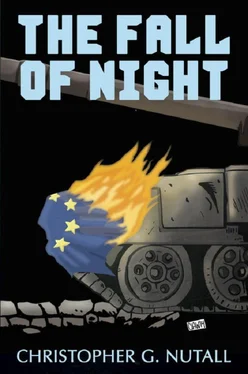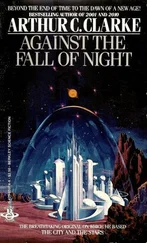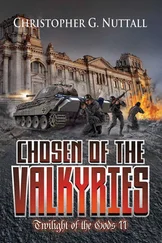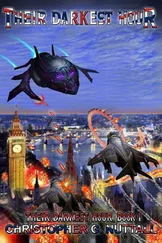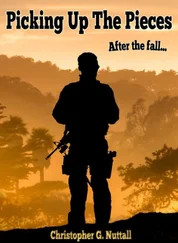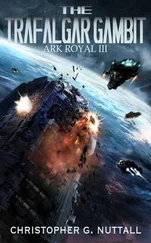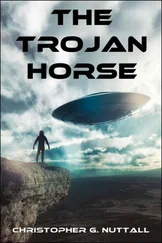Christopher G. Nuttall
THE FALL OF NIGHT
All details given as to the size, composition and technology of the British, Russian, American, and European Forces involved in the story were derived from reasonable speculation as to the future of those armed forces. Likewise, the details of the updated British emergency protocols are purely fictional, although based on protocols known to be in existence for the Cold War period. I apologise for any confusion that might have been caused.
Please let me know if you would like a sequel.
CGN
From: The Guardian. 1 stJune 2007
Following questions in Parliament, Scotland Yard confirmed that the prime suspect in the rape and murder of Judy Lewisham near RAF Mildenhall was Corporal Michael Collins, an American serviceman stationed at RAF Mildenhall, a base operated by American forces in Britain. Collins, one of thousands of Americans stationed in Britain, was apparently confined to the base following the rape and murder; the Police investigation conducted by Inspector David Briggs was taken over by the Home Office, following the use of DNA remains to trace the murderer. The attempt by the Home Office to hush the entire affair up has caused great distress to the people of Judy’s community.
Unconfirmed reports have further reached this reporter that allege that Collins was flown out of the country as soon as the Home Office contacted American authorities regarding the possible extradition of Collins for trial and sentencing in Britain. Protesters, led by Judy’s family, have surrounded RAF Mildenhall and have refused to be dispersed by either police or American guards; a number of violent incidents have already been reported near American bases in other locations, with Americans attacked and in some cases banned from pubs and shops.
Condolences, many directly addressed to Judy’s family, have been flowing in from all over the world. President Nekrasov of Russia has offered his sympathies and support, if necessary, to ensure that Collins is brought to justice. General Henri Guichy, who is in line for a seat on the European Defence Commission, called for the incident to be treated as a symbol of American arrogance in the world and for Europe to insist on revisions to the various Status of Forces agreements, particularly the ABM bases established in Poland against the expressed resolution of Brussels.
Although neither Ten Downing Street nor the White House have commented, it strikes this reporter that relations between Britain — and to some extent the European Union — and America have reached an all-time low. Between inflammatory comments made by Senator David Howery and Congressman Reaper, and calls for American bases to be placed firmly under British jurisdiction by a multi-party group of Members of Parliament in London, it seems that relations between Europe and America are about to go through a very rapid series of changes, perhaps even a total break. This reporter says; not a moment too soon.
Chapter One: Raging at Infinity
The problem with the British Army is that there is a British Army.
Unnamed Progressive, 2007
London, England
It was turning into a very bad day.
“They’re about to begin the march,” Sergeant Harold Page said. “The Superintendent wants to ensure that everything is ready for them.”
Inspector David Briggs said nothing, merely looked down at the images from countless CCTV cameras scattered around the centre of London, from the park where the marchers were gathering to the entire region of Hyde Park, which had been designated as the endpoint for the march, where the leader of the Front for Peace, Freedom and Progress would address the crowd. There were thousands of people there, some of them dedicated marchers, some of them students or tourists drawn into the excitement, some of them there merely to pick up girls… and a hardcore of real troublemakers.
“We have over a thousand police officers on duty,” he said, knowing that the Metropolitan Police had drawn in other officers from all over the country, as well as calling up all of the reserves. The remainder of London would be shorthanded for the duration of the march, something that worried the Superintendent enough for him to pass local control over to Briggs. The Superintendent was a political animal; he knew that little good would come out of the march, and it would be a career-wreaker for any officer if something went wrong. “We have medics, riot control squads and even armed anti-terrorist units on alert. What could go wrong?”
Page shrugged. The Metropolitan Police dreaded a repeat of the protest marches that had occurred in America, where a handful of local terrorists had used car bombs to slaughter the protesters and incite anger. The American War on Terror had been going on for twenty-three years and the British public — along with the remainder of the European Governments — feared that it would one day spread back to Britain and Europe. It would only take a handful of hardcore troublemakers — and the Home Office had warned that several dozen known troublemakers were planning to attend the march — to kill thousands and further stain the reputation of the Police.
Briggs was, for a moment, lost in thought. If it had been up to him, he would have banned the protest from taking place, no matter what the law said. It was a disaster waiting to happen… but the Prime Minister would never allow the Metropolitan Police to prevent protesters from marching. The protesters had played a major role in the fall of the British Government after the RAF Mildenhall Incident… or perhaps it had been after the Sudan Disaster. They would never dare prevent the people from asserting their right to protest, no matter the dangers, or the extremists who would use it as political leverage. Peace was important, the Government said, peace at any price…
The Sergeant coughed. “Yes, I know,” Briggs said, more in private irritation than in anger. The Metropolitan Police had what seemed like a permanent manpower shortage and they couldn’t afford to lose anyone. “Tell the Superintendent that everything is ready and we hope that it can be concluded quickly.”
He leaned back in his chair and muttered a curse under his breath. It was just like the Metropolitan Police of 2024; they could build a mobile command centre that was capable, in theory, of commanding a police operation over the entire United Kingdom… while at the same time, they could neither provide the manpower to police Britain effectively, or even comfortable chairs for the officers on duty. He would have preferred to have handled matters from New Scotland Yard, but procedure called for the officer commanding — at least until politics decreed his replacement — to be on the scene. At one point, that had meant something; now, all it meant was chaos.
The protesters hadn’t waited for the police go-ahead; that would have been dreadfully conformist of them. The stewards provided by the Front for Peace, Freedom and Progress hadn’t attempted to stop them; three of them were already cooling their heels in a police van, handcuffed to the side of the van, until they could be transported to the nearest police station to be charged with assault and attempted rape. The Front for Peace, Freedom and Progress was a genuinely transnational organisation; Briggs had been disgusted with some of the stewards who had been brought in to provide crowd control. The Superintendent hadn’t allowed him to use that as a cause to have the march cancelled; politics, once again…
The bastards would probably get away with it as well.
“Two pickpockets caught by the crowd,” Page said, interrupting his thoughts. The dumber of London’s petty criminals had gravitated to the crowd as well, seeing an opportunity for quick profit; the crowd might allow them to get away with it, or they might turn on the crooks. Socialists, in Briggs’ experience, tended to get very irate when it was their pocket being picked. “The local officers have them in custody.”
Читать дальше
